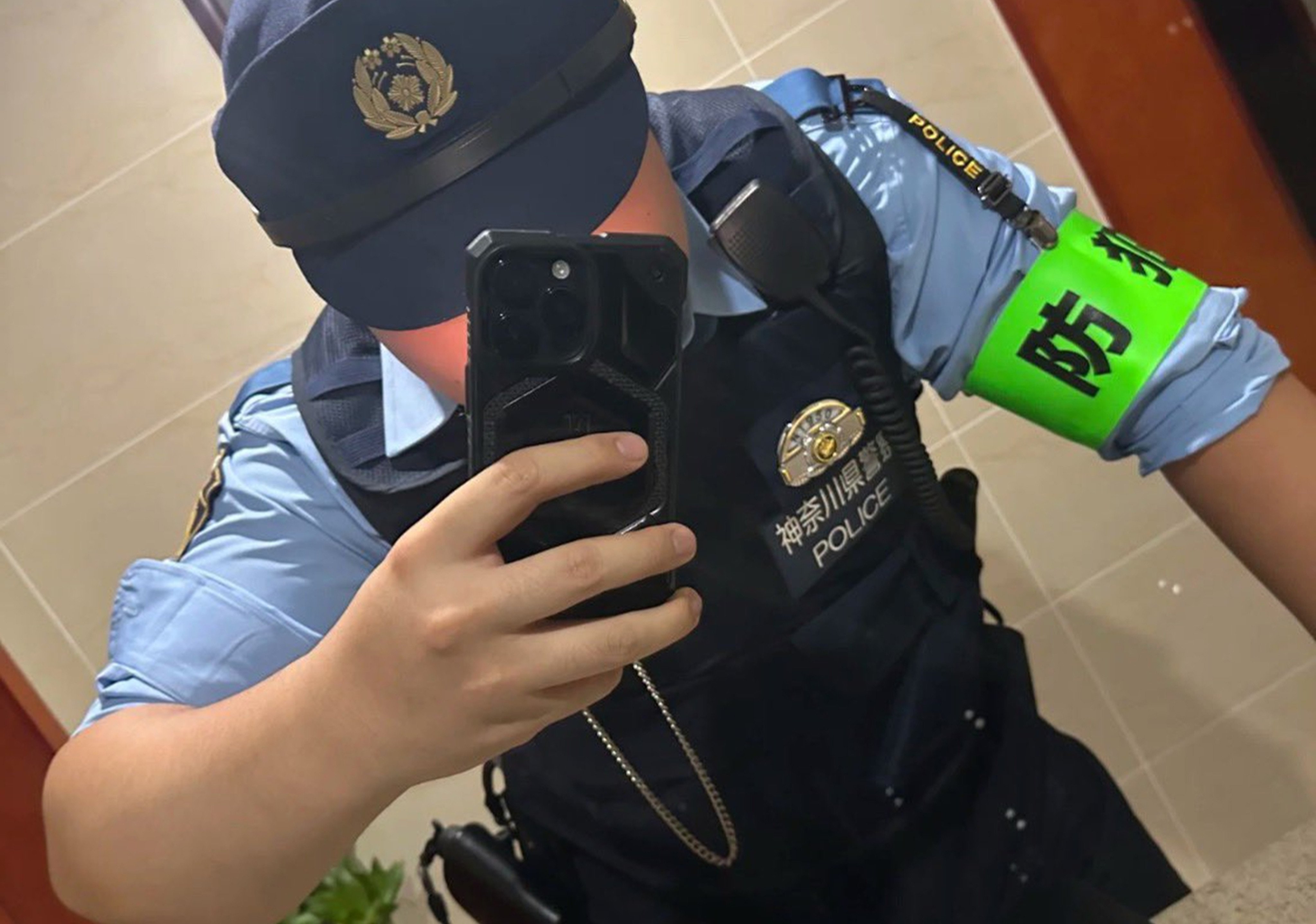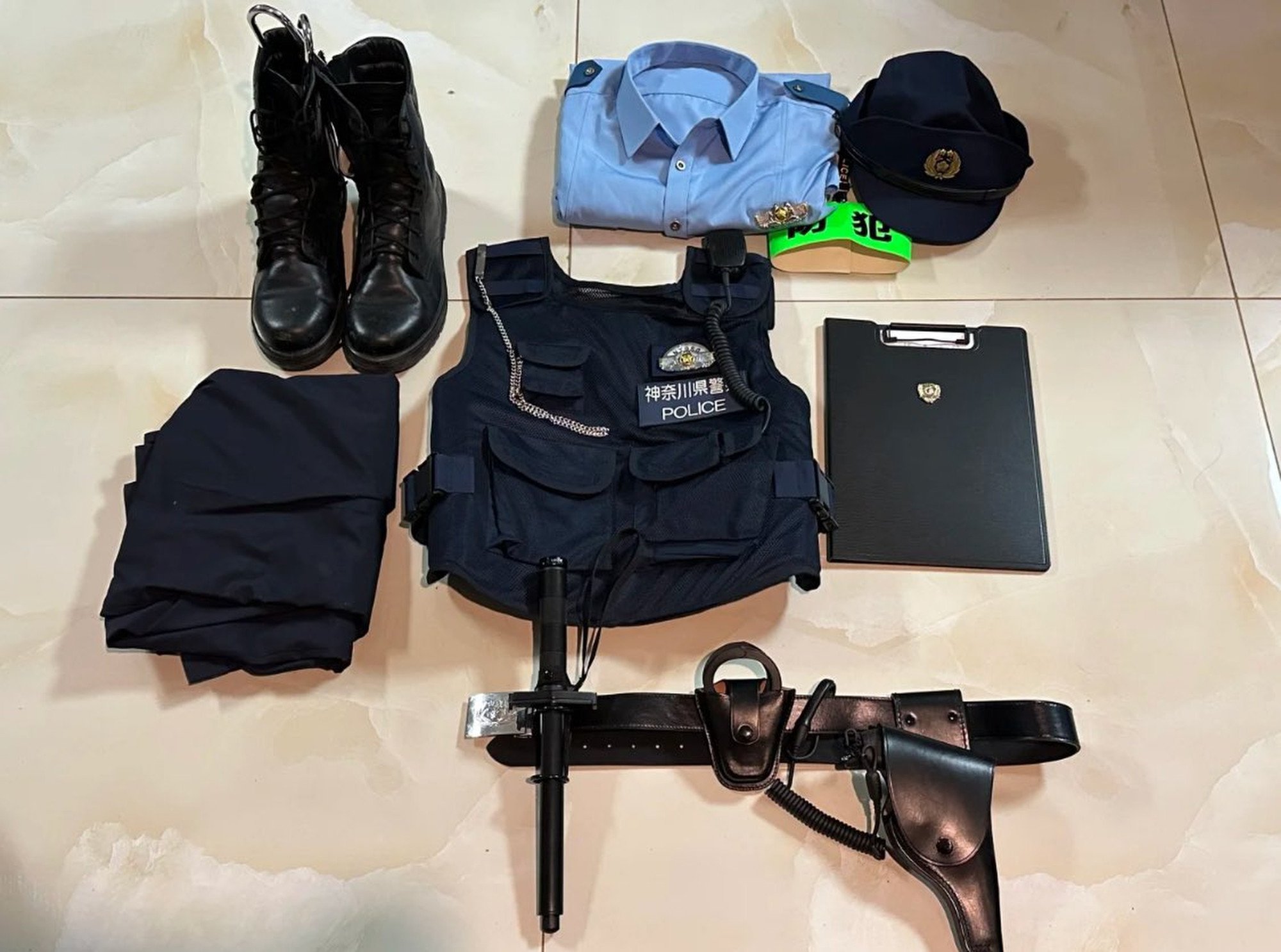Fake Japanese police uniform, reportedly from China, sparks real-life crime concerns
Concerns have arisen over images of a man wearing a realistic Japanese police uniform, suggesting a risk of impersonating an officer, which is illegal in Japan

A man has sparked significant concern online after sharing images of himself dressed in a remarkably realistic replica of a Japanese police uniform.
The Weekly Women’s Prime news magazine reported on May 1 that the photos have gone viral in Japan, with many people expressing fear that anyone can now obtain a police uniform and impersonate an officer.
The photos depict a man wearing a standard blue police shirt, with a shoulder badge. He has a stab-proof vest displaying the logo of the Kanagawa Prefectural Police and a high-visibility armband. Additionally, he is equipped with a police-style belt that includes a holster and baton, and a two-way radio receiver clipped to his shoulder.
The location of the photos remains uncertain, but there is speculation that the man may have been in China, as the images were accompanied by the phrase “Kanagawa Prefectural Police cosplay” written in Chinese.
Social media users in Japan have expressed their concern.

“If someone wearing that uniform spoke to you in Japanese, then it would be natural to assume they were a police officer,” read one comment on the magazine’s website. “An elderly person or a child would do as they were told without thinking, and they could easily be kidnapped.”
Another post read, “Even if they are caught wearing this uniform, it is still a minor offence and the punishment is extremely lenient. Before long, people cosplaying as police officers will be able to commit crimes.”
Under Japanese law, impersonating a police officer or other local or national government official is a crime, said Shinichi Ishizuka, founder of the Tokyo-based Criminal Justice Future think tank. However, he added that it is not unheard of in Japan.
“There have been cases when officers have ‘forgotten’ to hand in their uniforms when they retire because they want to keep them as a souvenir of their time in the service,” he told This Week in Asia.
Perhaps they do not know that it is illegal, but the law is very clearShinichi Ishizuka, legal analyst
“They can be worn by their friends or family, of course, or they can be sold to people who want to wear them and pretend to be police,” he said. “Perhaps they do not know that it is illegal, but the law is very clear.”
A representative of the Kanagawa police told the magazine that it was “not aware” of the matter, which drew further criticism of the police for their apparent indifference.
“If it was used in a crime, what would they do?” asked one person. “They must be really bored at police headquarters, just sitting around.”
Another comment heightened the sense of urgency, suggesting that China could manufacture uniforms for various Japanese institutions, including police, military, railway staff, and civilian aircrew, to “disguise” themselves and infiltrate Japan.
Ishizuka agreed that it was “not difficult” to obtain a uniform that resembled the real thing.
“If you want to get a judge’s robes, you can do that. If you want to wear a soldier’s uniform, it is not hard to get everything that you need on the internet today,” he said. “And there have certainly been cases of criminals wearing the uniform of a private security guard or a police officer to carry out a robbery or something similar.”